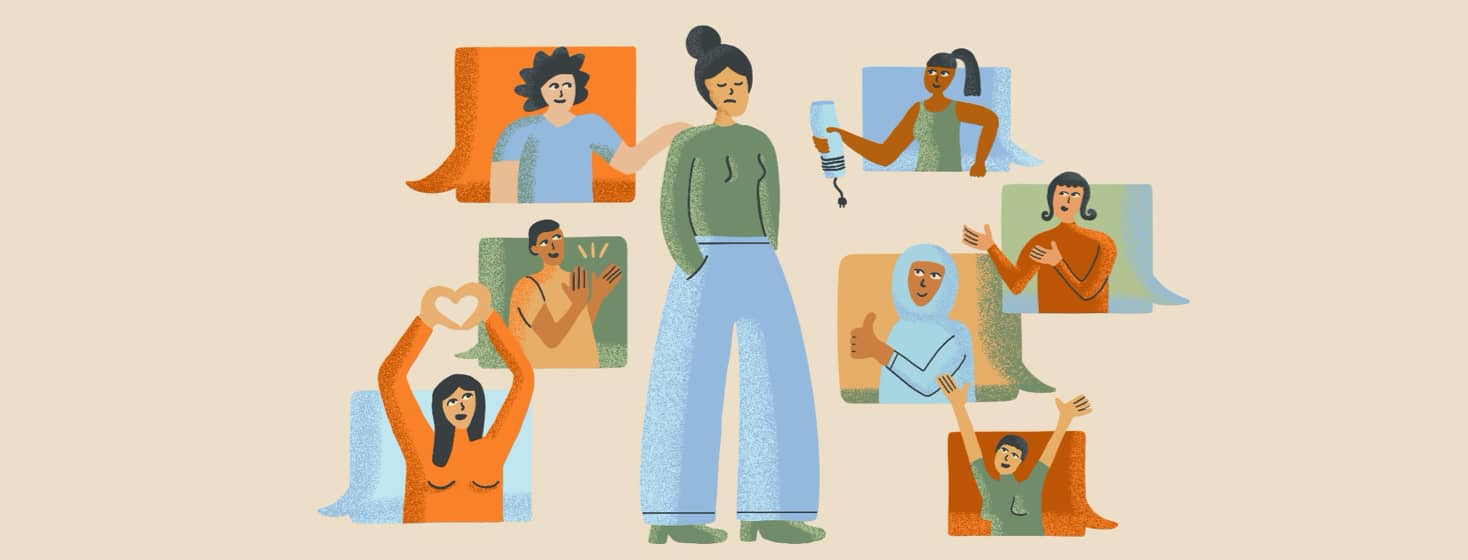Community Views: Tips for Those Newly Diagnosed With IBS
Getting an irritable bowel syndrome (IBS) diagnosis can feel like a relief. The path to diagnosis can be long, so finally, having a diagnosis feels affirming. But what that diagnosis means and how to move forward can be daunting.
To help people just beginning this journey, we asked the Facebook community, "Tell us: What are tips for someone newly diagnosed with IBS?" There were some great tips from IBS veterans!
Adjust your diet
One of the most commonly mentioned tips was making dietary adjustments. Having IBS means your gut is easily triggered, but each body responds to foods differently.
Finding out what is helpful and harmful for your gut is a process. It partly depends on which type of IBS you experience. The gut needs different things for IBS-C than for IBS-D. Many community members shared what they found helpful in their case.
"Try to eat whole, untampered foods as much as possible."
"Eat lite when you feel full – soups, mashed potatoes, jello, pudding, etc."
"Avoid alcohol, raw veggies, too much fat, and don't skip meals."
"Start the Low FODMAP diet and check your histamine."
"Fiber, fiber, fiber."
"Go gluten-free."
"Drink lots of fluids."
"Eliminate sugar as much as possible."
Supplements for IBS
In addition to dietary changes, adding certain supplements is helpful for some people. Probiotics, prebiotics, and laxatives may help keep the gut healthy. Always discuss options with your doctor or specialist before adding something to your treatment plan.
"Miralax has been very helpful."
"IntestiNew, probiotics, prebiotics, and getting food sensitivities test."
Be prepared
Planning ahead with IBS is key. You may feel nervous about going out, wanting to avoid triggers away from home. But with some forethought, you can enjoy successful outings!
Have an emergency bag of supplies with you to avoid embarrassing situations. Bring your own transportation so you can leave if necessary.
"Carry Imodium, Gas X, and toilet spray everywhere."
"Wear Depends when you go out to dinner."
"Spare pants everywhere."
"Always know where the restroom is located in whatever place you're in."
"Bring safety food and an extra set of clothes for family visits."
Lower your stress level
Stress can be a trigger for IBS flares. Finding ways to lower stress in your life can help you manage the disease. Of course, this is easier said than done! Lean into activities or practices that help you feel calm. Surround yourself with supportive people.
"Stress is a massive trigger. End a toxic relationship – it helps loads!!"
"Try and relax. Stress can make it worse."
"Get counseling for stress or personal issues."
"Find good groups and people to share stories with so you don't feel so alone."
Find a good healthcare team
Working with knowledgeable specialists to address your IBS can make a big difference. Having a dietitian and gastroenterologist who are well versed in IBS can make your treatment more successful. But finding specialists who understand IBS sometimes takes a few tries.
"Find a good dietitian. It took me 3 goes to find one, but once I got one who actually understood IBS it made a huge difference in my recovery."
"See a good gastroenterologist. It took me years to find one to understand my IBS."
We appreciate everyone who shared their tips with the community! Learning about other people's experiences can help those recently diagnosed with IBS feel less alone.

Join the conversation